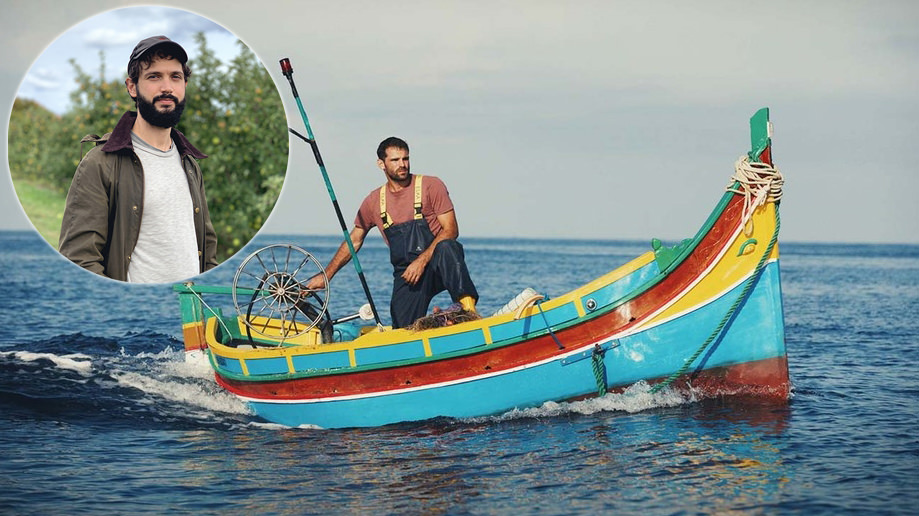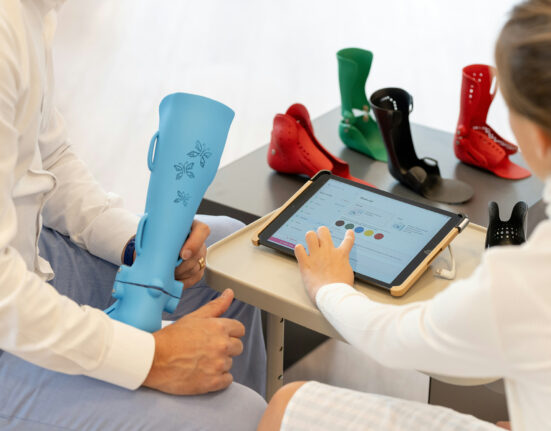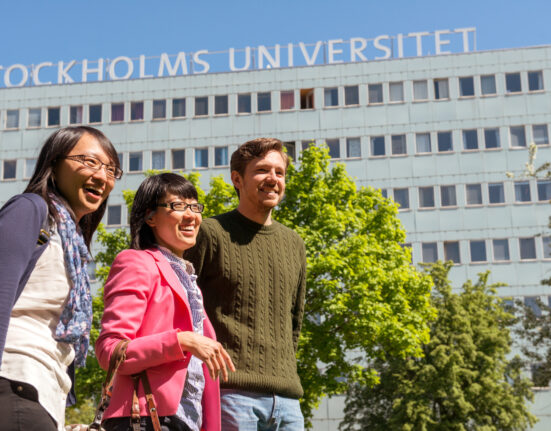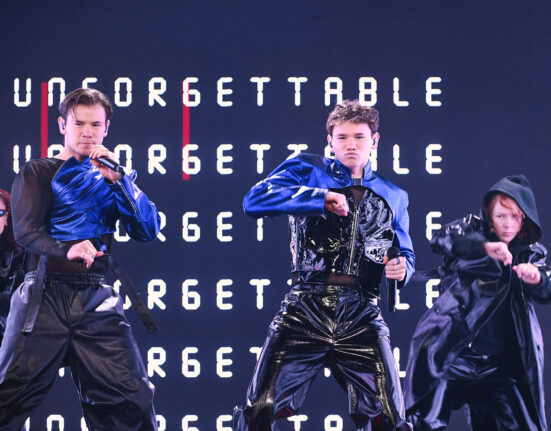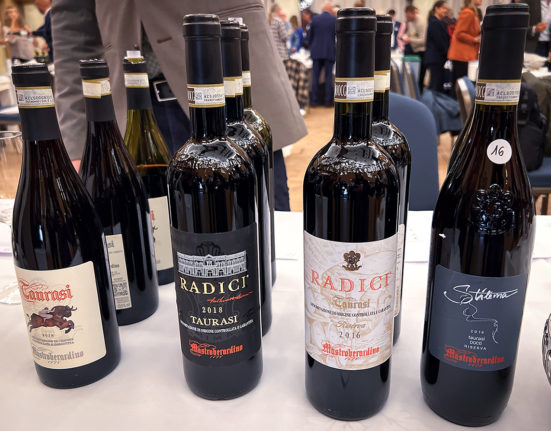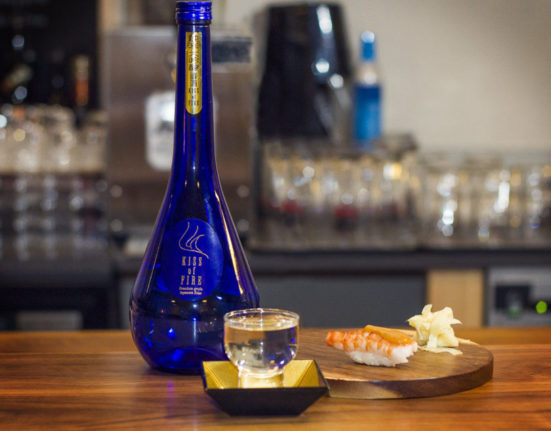With ‘Luzzu’ Alex Camilleri is not only bringing Malta to the big screen like we never have seen it before, but he’s also giving us a masterful approach to the life of fishermen in that country, the clash between tradition and modernity, the effects of climate change on the ocean and the struggles of a father who is torn between doing the right thing or turning into illegal practices to save the life of his son. ‘Luzzu’ is Alex Camilleri‘s breaktrough film and it is Malta’s submission to the Oscars.
Your Living City had the chance to sit down and have a Zoom-chat with Alex Camilleri where he spoke about how he wrote the script for ‘Luzzu‘ and turned common fishermen into actors. He also spoke about his connections to Sweden, his views on cinema, his passions and future plans.
Watch the trailer of ‘Luzzu‘:
Alex Camilleri grew up in Minnesota as a first-generation immigrant in the United States. His Maltese parents brought him up with the Maltese culture and he travelled many times back to the country with the family as he was growing up.
YLC: Hi Alex, where are you now? Are you still living in Minnesota or have you moved down to Malta?
Alex: I’m living in Malta. I grew up in Minnesota and there is a lot of Swedish ancestry in Minnesota, so I feel connected in some way.
YLC: Oh really, how do you feel connected? How is your relationship with Swedes and Sweden?
Alex: You may be interested to know, first of all, that there is also a Swedish population in Malta. My cousin is married to a half Maltese, half Swede, that has at least made our family a little bit taller… (laughs)… Growing up in Minnesota, the predominant ancestries were German, Irish and Swedish. Sometimes you’d be at someone’s house and they’d be making a traditional Swedish dish. That kind of things were passed down through the generations. There has been 2 or 3 generations since the Swedish migration, this is interesting to me.
YLC: So that means you have had your fair share of köttbullar (meatballs) and kanelbullar (cinnamon buns)?
Alex: Every family seems to have a Swedish meatball recipe from their grandmother, so a lot of my friends, you’d go over to their house for dinner and eat delicious food like that.
YLC: This has been an interesting parenthesis to start the interview with! But ok, so you are now living in Malta? And are you working on a new project?
Alex: It’s hard to say where I live now between Malta or NYC, but for the time being I’m in Malta starting my next film, which I hope to be shooting a year from now. It’s a film with a similar philosophy as ‘Luzzu‘. I’m embedding myself in a small community and showing a side of Malta that a lot of people don’t really know about and working again with some non-actors. In fact I’ve been working on it almost since the day that I wrapped ‘Luzzu‘ and I’m really excited about it, because it’s similar in how I’m going to make it but the subject is very different and I think it’s going to surprise people.
YLC: That is very interesting because the actors, the people we see in ‘Luzzu‘, they’re not actors either, right? And I think that Jesmark and David, are they brothers?
Alex: In real life they’re cousins. That real relationship for instance was something that I discovered through the casting and that changed the characters and led me down a certain path about what their relationship could be in the film. In the film they’re not necessarily cousins, but it was by observing that fraternal relationship that the real Jesmark and David had, that I understood what their dynamic would be in the film.
I had to work hand in hand with the non-actors. To ensure that the performances would be good, I didn’t want to write things that were very much outside of their real experiences. I spent a lot of time with them and I got to learn to capture the nuance of their relationship and then expanding from there… How their world works, how the fishing is done, how are the other aspects like the market and eventually getting to things like the black market.
YLC: How was your directorial approach with the actors in order to guide them through the story and for them to still be them?
Alex: I did quite a bit of research before I met Jesmark and David, so I was a little bit knowledgeable in the challenges that they’re facing as fishermen. We would meet at David’s backyard, which is one of the locations of the film and I would present a scenario that would have come out of my research and like clockwork, they would have had a similar experience. I would also allow them to improvise their dialogue with what they did in that situation and I would give them an objective to complete so for instance: -You guys catch this swordfish and it’s off season, Jesmark, you want to keep this swordfish and David you want to throw it away.- So I would let them come up with the dialogue and supply the emotional motivations for the actions that they would take. I would record it on a small camera then I would go home and I would write the discoveries that we made into the script. This made my writing stronger and more true to them. So it was very much a dance with the non-actors, they were full collaborators.
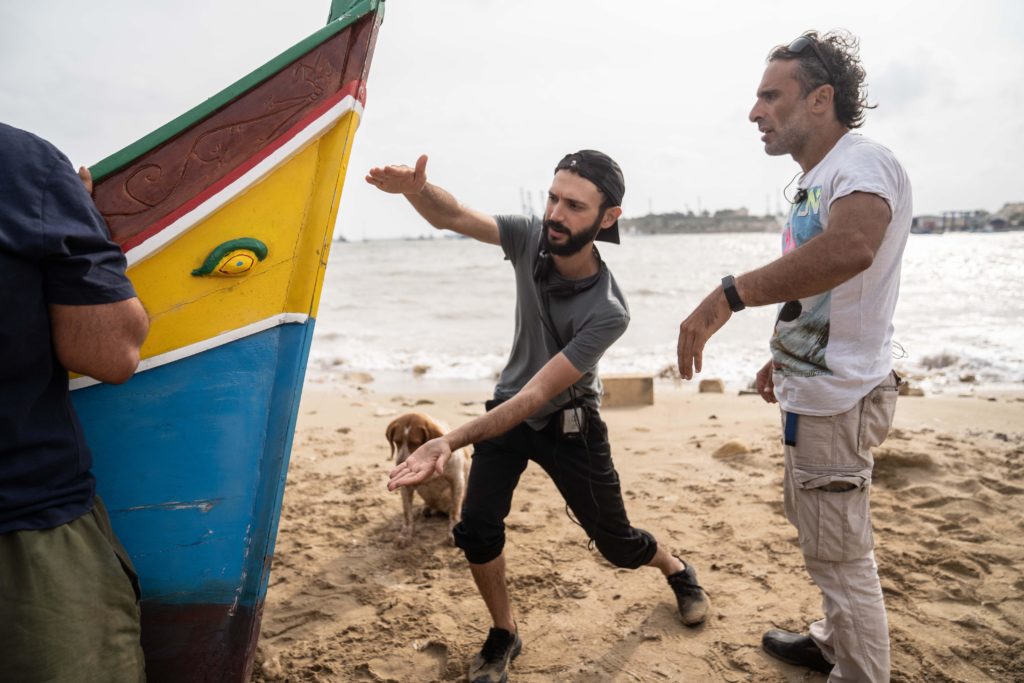
YLC: It sounds like the script developed itself all throughout the process of the making of the film and many things were added after your research as the black market, corruption, etc. Apart from knowing that the story was going to be about a fisherman, what other element was always underlying in the script from the beginning?
Alex: I get very seasick, so I didn’t make this film because I like to be on boats, but as soon as I started speaking to fishermen, I noticed there was something that united us. I grew up with immigrant parents who immigrated to Minnesota from Malta just before I was born. So I grew up watching my parents make decisions about what part of their heritage they had to let go of in order for their kids to thrive in a new context. As I grew older I started thinking about how I relate to my heritage and if I have a family one day, what of this really beautiful history that we have on this island, what can be carried forth to my own children. And when I spoke to the fishermen they were kind of rattling with the same themes. They were kind of the last of a generation, who were practicing a tradition that had been kept alive for centuries, coming up against this storm of forces that are beyond what one person could ever grapple with: climate change, EU regulations and big businesses, and all that was coming down on their families. They really had to make a decision, can I let my son, even if he wants to, do this, because it would almost be cruelty to let them become like me. When I started hearing those things I said, well, I have an emotional relation to this world and this gave me some confidence that I could tell this story.
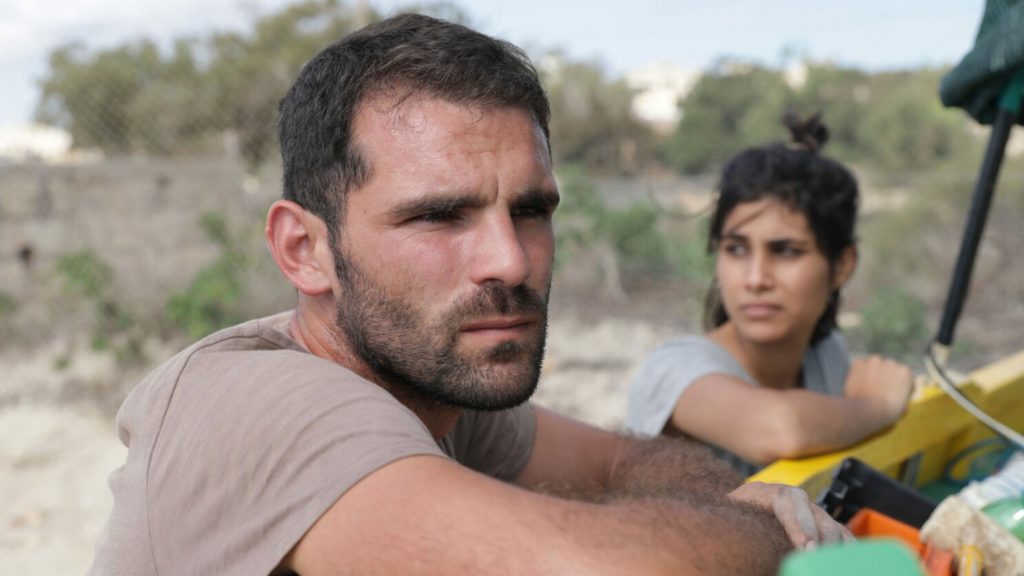
YLC: I read somewhere that you wanted to to portray Malta in film, because you hadn’t seen films coming from the country that had become known in history. Now you are there bringing Malta to the world. What parts of Malta you have always felt this burning feeling to share and feature the most?
Alex: Malta has been used as a location in a lot of Hollywood films, so we’ve been looking at Malta on the big screen for decades, we just never recognised it as such. Part of the premise of a film like this is a simple but a radical idea in a way, to flip the camera away. The Hollywood films come here and make their postcard shots and I always felt like putting the camera down on any street corner and a film would unfold right in front of you. To film Malta as it’d be seen by a citizen, not by a tourist, and when you do that you are going to show very ordinary things, but also beautiful things. And not to mention the faces, the real people, the Maltese appearing as Maltese in their own language, which is rarely ever been put on screen.
YLC: Malta seems like a land of contrast. You show contrast also a lot in ‘Luzzu‘ when we see the big container ships in the port in the background behind the small fishing boats that look kind of melancholic, threatened in a way by these bigger crafts. Is this contrast also something you intentionally want to convey in your films?
Alex: Yeah, in fact, I’m so glad you used the word contrast. I was with a friend earlier today and we were talking about Malta being a land of contrasts and I told him that I struggle to explain that to people. I’m glad that I didn’t even have to say it to you and you felt it in the film. It’s in so many things these contradictions, being an outsider maybe I’m more sensitive to them. There are aspects in the Maltese culture that I will never understand and there are some things that I’m glad I don’t understand, because to me they’re incomprehensible. You know there’s not a lot of care for the environment in Malta and for a country that’s so small and it’s never going to get any bigger, why would you not preserve the little that you have.
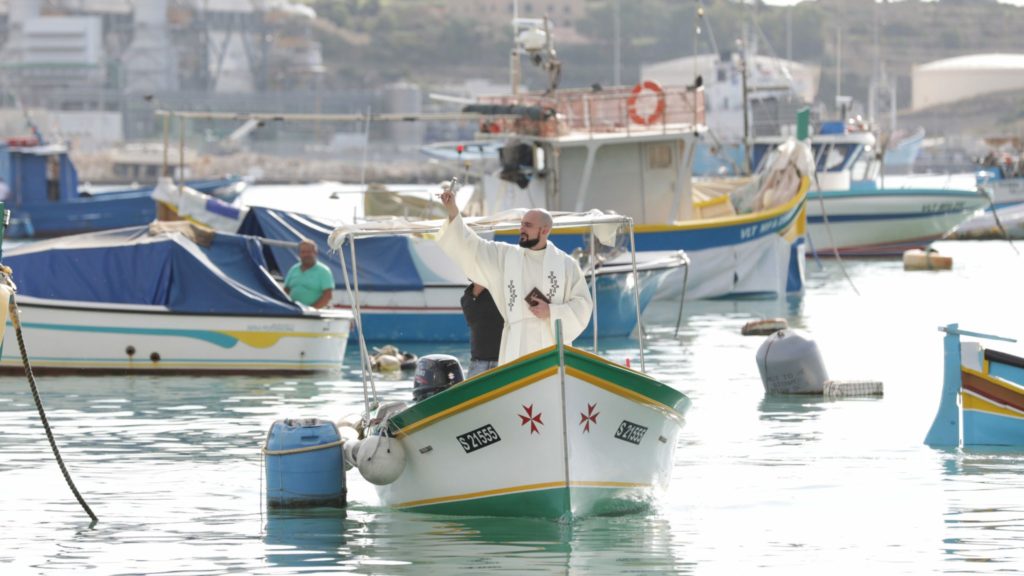
YLC: Which films have inspired you the most?
Alex: I was very much embedded to the Italian neorealists, Rosselini, De Sica, Visconti. Humbly you can’t really talk about ‘Luzzu‘ without paying respect to Visconti’s film ‘La terra trema‘, which focuses on a family of Sicilian fishermen, played by real fishermen. I think the film was made in 1948. It’s a remarkable film that gave me a lot of courage. Just the act of putting onto screen that life and showing them fishing, documentary in a sense, again it gave me a lot of courage when I realised, Oh! this is worthwhile! Kind of from an anthropological standpoint this stuff needs to be captured before it disappears. The ethos of neorealism was very suited to what we needed to do in Malta because I had no cinema history, really and a very small infrastructure for national cinema, a very limited set of resources for making film. So I thought, of course, what the neo-realists accomplished is what we need to look at, because Italy being ravaged by war and fascism and poverty, they had very little but they said, ok, what we have, let’s show it to the world. Let’s not hide from our poverty, let’s put it on screen, let’s take the camera out of the studio and put it on the street, shoot real people, to show everyday struggles. Malta never had any neo-realist movement, it never had any cinema movement, so the stories of the everyday people have sort of been a blank spot. there is a lot of 20th century history that’s lost. So adopting that ethos was very important to us, to recognise that the stories of everyday people have a value and we can make a compelling film about that. It doesn’t matter if we don’t have fancy cameras or fancy lights or we can’t build film sets, we’ll just put the camera on the street and tell the story that way, it’ll be enough. And of course I also peppered in some other influences along the way like the social realism of Ken Loach and the Dardenne brothers, those were big inspirations. My mentor American filmmaker Rami Bourani, I learnt a lot from him, he also uses non-actors and portrays stories about people on the margins living in New York city and all that kind of mixed together, that helped us make ‘Luzzu‘, every bit of it.
YLC: Can you gives us a clue or an idea on what you will be working on in the near future?
Alex: You bring me back to my next project. The next film is much brighter, I think it’s going to show the character of the Maltese people which is very friendly and warm, the strength of family. You may not get that from ‘Luzzu‘ because it’s about a sad guy going through a very tough time, but family can also be very nourishing and the Maltese people can be really funny, so I’m glad that my next film is going to show that side of the island.
All images used with authorisation and facilitated by the Stockholm International Film Festival.







